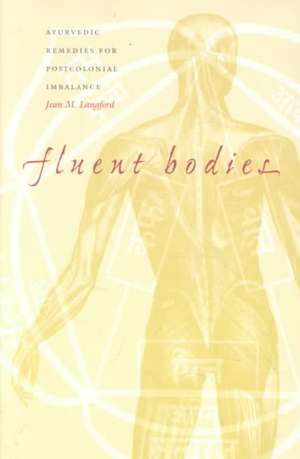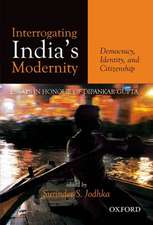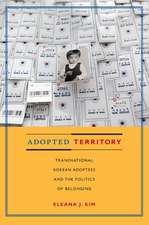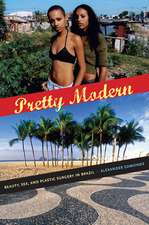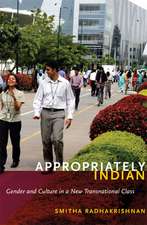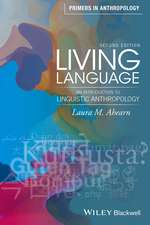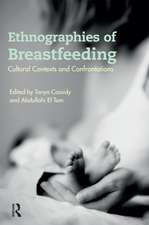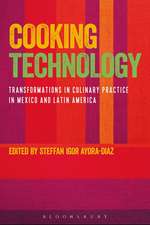Fluent Bodies – Ayurvedic Remedies for Postcolonial Imbalance: Body, Commodity, Text
Autor Jean M. Langforden Limba Engleză Paperback – oct 2002
Preț: 265.59 lei
Nou
Puncte Express: 398
Preț estimativ în valută:
50.84€ • 55.24$ • 42.73£
50.84€ • 55.24$ • 42.73£
Carte tipărită la comandă
Livrare economică 21 aprilie-05 mai
Preluare comenzi: 021 569.72.76
Specificații
ISBN-13: 9780822329480
ISBN-10: 0822329484
Pagini: 328
Ilustrații: 16 illustrations
Dimensiuni: 149 x 228 x 26 mm
Greutate: 0.49 kg
Editura: MD – Duke University Press
Seria Body, Commodity, Text
ISBN-10: 0822329484
Pagini: 328
Ilustrații: 16 illustrations
Dimensiuni: 149 x 228 x 26 mm
Greutate: 0.49 kg
Editura: MD – Duke University Press
Seria Body, Commodity, Text
Cuprins
1: Introduction: (Re-inventing Ayurda)Colonial MimesisUsing the Name of AyurvedaBodies of KnowledgeBeyond the Seduction of SystemsFrom Genealogies to Orientations2: Ayurvedic InteriorsGoing DeepWhole Body, Half BodyAll Westerners Want to Be KaphaSubverting Modernity3: Healing National CultureTemporalities in a Healing TextImitative IncompetenceThe Problem of Copying EuropeAyurveda as a Sign of the NationMythic Histories4: The Effect of ExternalityFrom Guruparampara to CurriculumInstitutionalizing PurityPoetic Logic and Textbook ExpositionThe Slippage of FramesInstitutionalizing Corruption5: Clinical GazesDosic Bodiliness and Docile BodiesDosa in a Petri DishSonograms and SphygmographsThe Poetics of Clinical ReasonSympton and Metonym
Recenzii
[A] fine example of contemporary research located within a post-modern framework.Farah M. Shroff, Canadian Review of Sociology and Anthropology[I]lluminating. . . . [Langford's] accessible examination of the neo-orientalism with which modern Ayurveda and the development of its terminology is constructed will be of importance to scholars (and students) of a variety of disciplines.Frederick M. Smith, Religious Studies ReviewThis is an important book. Jean M. Langford provides an insightful description of how different ayurvedic traditions developed and coexisted in both colonial and independent India. . . . The author's formidable linguistic, analytical, and writing skills shine through in this book. . . . [C]ompelling and instructive. . . . [U]ndergraduates and postgraduates, as well as teachers in history and anthropology departments worldwide, are likely to find it of great interest.Sanjoy Bhattacharya, American Historical ReviewAlso reviewed in Critical Sociology. Listed in Journal of Asian History and, Bulletin of the History of Medicine. Mixed review in Australian Journal of Anthropology
"[A] fine example of contemporary research located within a post-modern framework."--Farah M. Shroff, Canadian Review of Sociology and Anthropology "[I]lluminating... [Langford's] accessible examination of the neo-orientalism with which modern Ayurveda and the development of its terminology is constructed will be of importance to scholars (and students) of a variety of disciplines."--Frederick M. Smith, Religious Studies Review "This is an important book. Jean M. Langford provides an insightful description of how different ayurvedic traditions developed and coexisted in both colonial and independent India... The author's formidable linguistic, analytical, and writing skills shine through in this book... [C]ompelling and instructive... [U]ndergraduates and postgraduates, as well as teachers in history and anthropology departments worldwide, are likely to find it of great interest."--Sanjoy Bhattacharya, American Historical Review Also reviewed in Critical Sociology. Listed in Journal of Asian History and, Bulletin of the History of Medicine. Mixed review in Australian Journal of Anthropology
"[A] fine example of contemporary research located within a post-modern framework."--Farah M. Shroff, Canadian Review of Sociology and Anthropology "[I]lluminating... [Langford's] accessible examination of the neo-orientalism with which modern Ayurveda and the development of its terminology is constructed will be of importance to scholars (and students) of a variety of disciplines."--Frederick M. Smith, Religious Studies Review "This is an important book. Jean M. Langford provides an insightful description of how different ayurvedic traditions developed and coexisted in both colonial and independent India... The author's formidable linguistic, analytical, and writing skills shine through in this book... [C]ompelling and instructive... [U]ndergraduates and postgraduates, as well as teachers in history and anthropology departments worldwide, are likely to find it of great interest."--Sanjoy Bhattacharya, American Historical Review Also reviewed in Critical Sociology. Listed in Journal of Asian History and, Bulletin of the History of Medicine. Mixed review in Australian Journal of Anthropology
Notă biografică
Textul de pe ultima copertă
"This rich study incorporates a wide range of contemporary and historical materials to make wonderful theoretical interventions into the literature on Ayurveda and India. Langford pulls the reader into a new understanding of the nuanced relationships between history, nation, modernity, clinical debate, and the practices of Ayurveda."--Vincanne Adams, author of "Doctors for Democracy: Health Professionals in the Nepal Revolution"
Descriere
An ethnography of Ayurvedic medicine which argues the ills it cures are largely effects of postcolonial identity.
